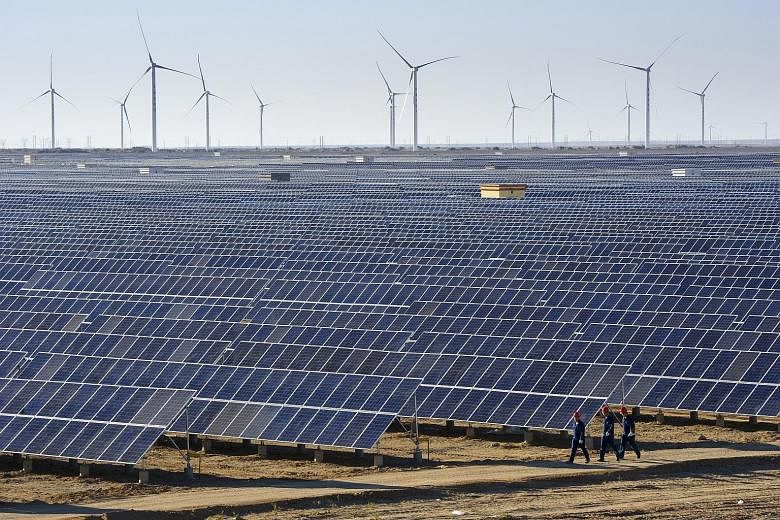Renewable energy can never and will not replace oil, coal and gas entirely ("Historic deal may signal end of fossil fuel era"; Monday).
Renewable energy is totally dependent on the fossil fuel-based economy.
Coal power is used to produce solar cells in some places. And if you have a massive increase in production, you will have a corresponding increase in air pollution and environmental devastation from the use of conventional energy to produce solar cells.
If we rebuild the entire industrial and transportation infrastructure to switch to renewable energy, we will still have to burn massive amounts of fossil fuels to do so.
Countries would probably do this while maintaining the current fossil fuel-based economy.
As the world's higher-quality fossil fuel reserves rapidly deplete, no combination of alternative energy sources is likely to be enough to sustain industries at their current scale.
There are questions on renewable energy.
First, what are the factors driving the total cost of different renewable technologies, such as equipment versus soft costs? How far will costs continue to decline? Will cost be affordable enough to deploy renewables on a very large scale?
Second, what are renewable energy's prospects of becoming a primary source of energy?
Renewable energy is also commonly used to make electricity, but how does this affect its substitutability for uses that are currently non-electric, such as thermal heating and transportation?
And what about storage?
Wind and sunshine are erratic, depending on seasons. While wind and sunshine are free, wind turbines and solar panels are not.
Although the cost of solar panels has plunged, wind and solar farms still tend to produce more expensive electricity than coal and gas power stations on a levelised cost basis, which must include the expenses of building them.
Alternative energy sources have their own issues, such as energy transfer or destruction of the natural habitat. Hydro energy involves building dams and this, in turn, will destroy the habitat of the river or lake they are placed in.
No single solution can meet our society's future energy needs.
The solution, instead, will come from a family of diverse energy technologies that share a common thread that they do not deplete our natural resources or destroy our environment.
Renewables will remain niche players in the global energy mix for decades to come.
The past and the foreseeable future still belong to hydrocarbons, and we can expect natural gas, the cleanest of the hydrocarbons, to garner a bigger share of the global energy pie in the near and long term.
Francis Cheng

